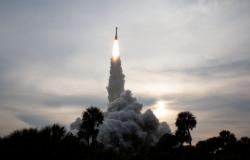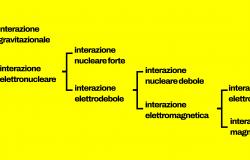RIYADH: Saudi Arabia’s transformation has involved many perpetrators: the government, Saudi citizens, the private sector and international partners. Thanks to their combined efforts, the plan is ahead of schedule in 2023, when Vision 2030 will reach the halfway mark.
Eight years after its launch, the plan’s promises of social reform and economic diversification are quickly coming to fruition. In fact, 87% of the 1,064 initiatives are considered completed or in the process of being completed.
Vision 2030 proposes three axes: building “a dynamic society”, “a prosperous economy” and “an ambitious nation”. They are deployed using a phased approach and allow the Kingdom to adapt, evolve and become more agile.
As Saudi Arabia approaches the end of the second phase – and the start of the 2025 implementation period – the economic strategy, which initially raised doubts, is no longer a simple idea, but an effective transformation.
By the end of 2023, some 197 of the 243 key performance indicators of Vision 2030 had been fully achieved. Among them, 176 exceeded their objectives.
A similar trend is observed in various socio-economic areas, prompting the nation to reconsider its ambitions and set higher targets for 2030.
A technicolor economy
Launching the economic diversification plan in 2016, Crown Prince Mohammed bin Salman promised to improve the Kingdom’s business environment. It has enabled the economy to flourish and generate employment opportunities for citizens as well as long-term prosperity for the nation.
Between the increase in foreign direct investment, the growth in the number of small and medium-sized businesses, and the opening of new sectors in areas such as tourism and entertainment, the nation has documented a record contribution from non-oil revenues.
By the end of 2023, revenues exceeded $121.8 billion (1 dollar = 0.94 euros) and contributed 50% to real gross domestic product.
The Kingdom’s non-oil GDP stood at over $503.6 billion, surpassing the baseline ($404.9 billion) and moving closer to the target of $515.6 billion.
The results come as Saudi Arabia has implemented a series of economic and regulatory initiatives that aim to boost private sector growth and attract foreign investment. These reforms include easing restrictions on foreign ownership in various sectors, streamlining business regulations, and privatizing state-owned enterprises.
These ongoing changes and Riyadh’s strategic location at the crossroads of three continents have made it a valuable investment destination for global businesses. In 2023, more than 180 companies have been granted permission to open regional offices in the Saudi capital.
Meanwhile, the private sector’s contribution to total GDP stood at 45%, marking a notable increase from the baseline of 40.3% and approaching the 65% target set by Vision 2030.
Echoing this notion, foreign direct investment has experienced notable growth, contributing 2.4% to the country’s GDP.
The Kingdom’s sovereign entity, the Public Investment Fund, had assets under management of over $749 billion in 2023, exceeding the annual target (around $720 billion).
These successes have prompted the Kingdom to rank first in the Middle East and North Africa region for venture capital investment in 2023, capturing 52% of the total capital deployed in the region with a value of $1.4 billion.
Additionally, the Economic Participation and Opportunity sub-index increased from 0.33 to 0.637, surpassing the annual target (0.592).
A fair workforce
Saudi Arabia reached its lowest unemployment rate of 7.7% in 2023, compared to 12.3% in 2016, surpassing the 8% target set for 2023 and moving closer to the 7% target. set by Vision 2030.
However, the country’s most notable achievement in employment remains characterized by a previously overlooked section of its workforce: female participation is now at a record high of 35.5%, surpassing the 2030 goal.
Saudi Arabia has seen a growing number of women taking on leadership roles in various sectors, including government, business, academia and the media.
This achievement is also attributed to a government that has actively worked to expand employment opportunities for women across a wide range of sectors, including health, education and finance, as well as technology and hospitality .
Additionally, Vision 2030 encourages female entrepreneurship as well as the growth of small businesses owned and managed by women. Initiatives such as loan programs, business incubators and networking events provide support and resources for budding female entrepreneurs to start and grow their businesses.
This is what led the country to announce that it would modify the women’s participation objective that it had set as part of Vision 2030.
The rise of SMEs
Small and medium-sized enterprises (SMEs), which are expected to play a vital role in the Kingdom’s economic development and contribute to the achievement of Saudi Arabia’s Vision 2030, have recorded growth of more than 200% since the launch of the national plan. The latter resulted in financial assistance of 10 billion Saudi Riyals (SAR) for SMEs (1 SAR = 0.25 euros) and 6.7 million employees in the sector by the end of 2023 .
In 2022, the SME Bank was established by the Council of Ministers as one of the development funds and financial institutions affiliated to the National Development Fund.
The SME Bank aims to increase the financing provided to the sector and strengthen the contributions of institutions in the provision of innovative financing solutions that contribute to the stability of this sector.
Therefore, Vision 2030 initiatives supported several programs, centers and services provided by the General Authority for Small and Medium Enterprises, also known as “Monsha’at”.
Among them, the program titled “Tomoh”, a community for fast-growing SMEs, aims to stimulate their growth through services and programs. Tomoh helped list 18 companies on the parallel market – called “Nomu” – of the Saudi stock exchange.
This text is the translation of an article published on Arabnews.com






